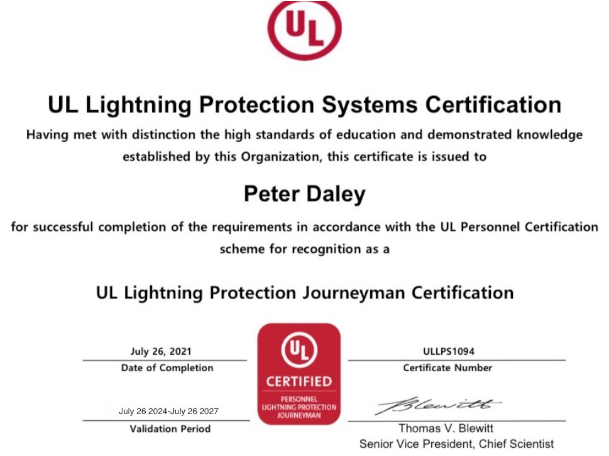When Lightning Strikes Your Home

Severe weather includes rain and thunderstorms, and along with thunder, there is always lightning. It's a common misconception that the lightning strike itself starts a fire, when in reality, lightning damages your home's electrical system which can result in a fire. Lightning can also damage other components of your home like your shingles, chimneys, gutters, and more.
As a homeowner, it's vital to remain watchful, take the proper precautions, and know what to do when lightning strikes your home. Read on to learn more about what happens when lightning strikes your home and what to do when it happens.
What Happens When Lighting Strikes
When lightning strikes, it can take multiple paths into your home, damaging its structure or electrical system. The following are only a few of the damages that lightning can cause:
- Shock waves: The strong electric current in lightning can cause breaks and cracks in hard building materials like concrete, brick, stone, and even cinderblock. These shock waves can also shatter windows and damage walls.
- Power surges: When lightning strikes, power surges can cause the electrical wiring in your home to fail, or in some cases, overload. This can damage large appliances like washing machines or refrigerators or cause faults and create the perfect environment for a fire.
- Fire damage: Most of what a house is made of is flammable, and if lightning travels through these materials, it can ignite a fire on them, causing thousands of dollars worth of damages.
How To Stay Safe
Being prepared is the best way to stay safe in the event of a lightning strike. Prevention is always the most effective method of protection for your home. The following are a few ways you can stay safe against lightning:
- Tall trees can be a direct route lightning can take to your home. Trim long branches away from your home to eliminate paths lightning can take.
- Consider installing lightning protection like lightning rods or surge protectors. These whole-house protection systems are a surefire way to make sure your home stays safe when lightning is around.
- If you have shingles made of wood, think about replacing them with fire-resistant ones like asphalt, metal, or tile. These materials aren't flammable, meaning if lightning strikes your home, a fire likely won't start.
- Avoid any direct contact with lightning routes during a storm, such as appliances or computers, and wait to shower or bathe until the storm passes.
What To Do
Lightning can immediately start a fire, so if you think lightning has struck your home, call 911 or contact the local fire department. Even if everything could be okay, it's better to be cautious than careless when it comes to your home. The pros can take a look at your home and identify any issues and teach you more about lightning protection. If a fire does start, take all of the right steps to get your family out of your home and to a safer space.

